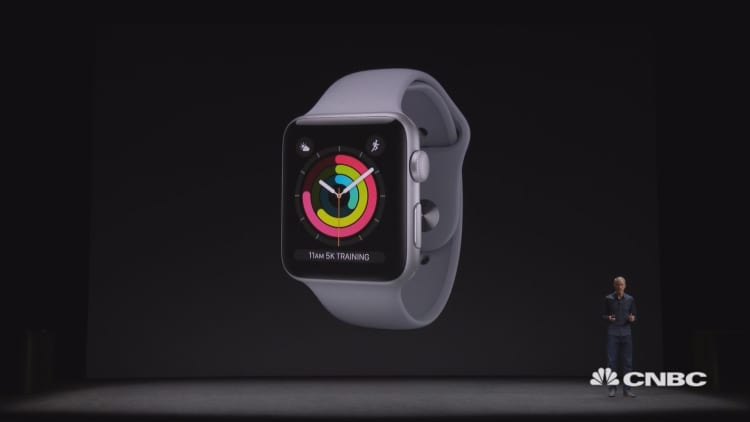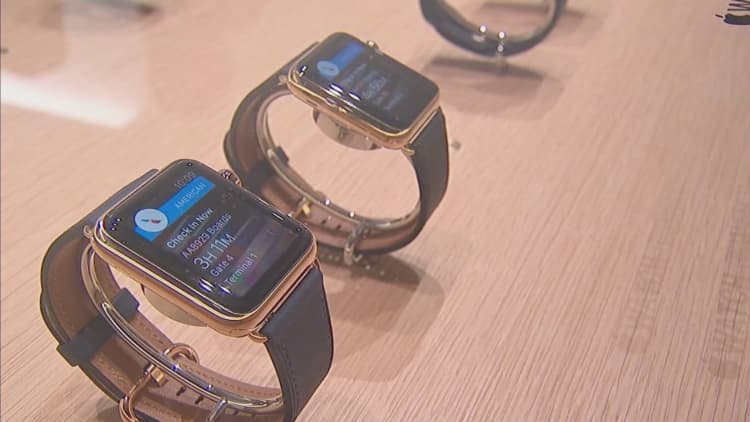
In the months after Apple announced its health-and-fitness-tracking Apple Watch, users started making some surprising declarations.
The Apple Watch had saved their life.
Apple's executive team took note.
At an event on Tuesday, where it unveiled a new version of the Apple Watch, the company showcased some of these heartwarming user stories: People with diabetes who integrated their blood sugar monitor with Apple Watch and saw something abnormal, or got healthy by leveraging the device's fitness features.
It also confirmed a CNBC report that it is teaming up with Stanford for a major heart study to test whether Apple Watch's heart-rate sensor can detect cardiac arrhythmias, or abnormal heart rhythms.
For this study, it is working with federal regulators from the U.S. Food and Drug Administration. It will need to show that Apple Watch's heart-rate monitor is sufficiently accurate and sensitive to be used as a screening tool. Otherwise, hospitals will find their emergency rooms flooded with so-called false positives — people who think they might be having a serious cardiac event but are actually perfectly healthy.
That's a big deal, as Apple until now has been careful to avoid making the kind of medical claims that would attract attention from the federal government. Its Apple Watch has previously been categorized as a wellness tool, which means it can operate without oversight from FDA.
"We have provided guidance to Apple regarding the development of their research study," an FDA spokesperson told CNBC. "We encourage all medical device manufacturers to meet with the agency early in their research and development process."
But the company seems to be aware that the Apple Watch is a "nice to have" as a wellness tracker, but a "must have" for people with a high risk of disease — especially if it can be proven to save lives.
According to the Centers for Disease Control and Prevention, about half of all American adults — 117 million people — had one or more chronic health conditions. And 86 percent of the country's $2.7 trillion annual health-care costs are for people with chronic and mental health conditions.
It's also big business, as Apple considers ways to boost sales of its Apple Watch. And as CNBC reported, the company is , which is testing out whether the Apple Watch can help it cut down on overall health costs.
Apple CEO Tim Cook noted in a recent interview with Fortune that "medical health activity is the largest or second-largest component of the economy, depending on which country in the world you're dealing with."
And wellness, which was Apple's initial focus, is the beginning.
"We started working on the Apple Watch several years ago. And we were focused on wellness. And wellness was about activity monitoring and also about performing some measurements of your health that people were not measuring, at least continually. Like your heart," he said. "Very few people wore heart monitors. So when we got into working on the watch we began to realize that the things that we could do were even more profound than that."
This story has been updated with comment from the FDA.
WATCH: Apple & Aetna hold secret meeting



